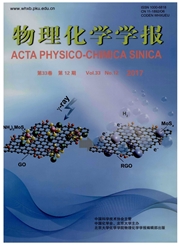
欢迎您!东篱公司
退出

 中文摘要:
中文摘要:
采用失重、极化曲线和阻抗谱等方法研究了尿素对土壤中微生物腐蚀(MIC)的影响.研究结果表明,在接菌土壤中尿素加速碳钢的腐蚀,而在灭菌土壤中抑制其腐蚀.接菌土壤中由于硫酸盐还原菌(SRB)的存在,腐蚀产物中检测到FeSz.电化学阻抗谱(EIS)的结果表明,在实验后期腐蚀过程由浓差极化控制.
 英文摘要:
英文摘要:
The effect of urea on microbiologically induced corrosion (MIC) of carbon steel in soil was investigated using weight-loss measurement, electrochemical polarization, and electrochemical impedance spectroscopy (EIS). Urea tends to accelerate corrosion of carbon steel in inoculated soils and inhibit corrosion in sterile soils. In inoculated soils, FeS2 was detected in corrosion products because of the presence of sulfate-reducing bacteria (SRB). The EIS results showed that the process was controlled by concentration polarization in the later stages.
 同期刊论文项目
同期刊论文项目
 同项目期刊论文
同项目期刊论文
 Effect of soil compositions on the electrochemical corrosion behavior of carbon steel in simulated s
Effect of soil compositions on the electrochemical corrosion behavior of carbon steel in simulated s Effect of sulfate reducing bacteria on corrosion of stainless steel 1Cr18Ni9Ti in soils containing c
Effect of sulfate reducing bacteria on corrosion of stainless steel 1Cr18Ni9Ti in soils containing c The effects of sulfate reducing bacteria on corrosion of carbon steel Q235 under simulated disbonded
The effects of sulfate reducing bacteria on corrosion of carbon steel Q235 under simulated disbonded Influence of sulfate reducing bacteria on corrosion of steel Q235 during natural evaporation in soil
Influence of sulfate reducing bacteria on corrosion of steel Q235 during natural evaporation in soil 期刊信息
期刊信息
